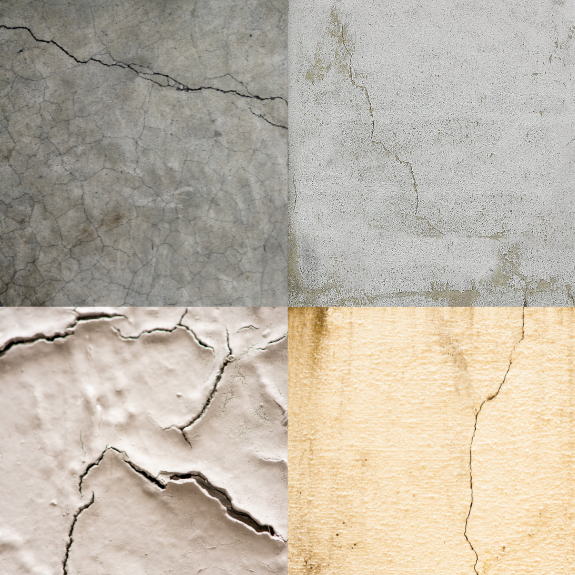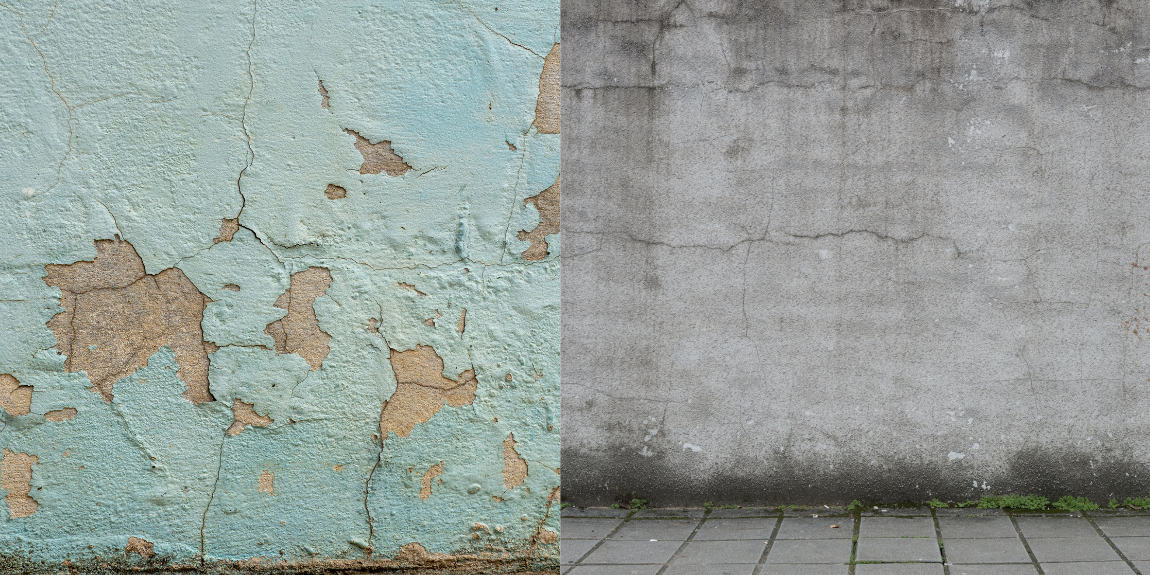Beyond Structural Problems: The Unseen Causes of Wall Cracks
Cracks in walls are often a cause for concern, conjuring up images of crumbling foundations and impending structural failure. However, not all cracks are indicative of serious structural issues. There are numerous other reasons why they may appear in your property’s walls.
We’ve been to a large number of properties where cracks have caused concern, when in fact there has been a simple explanation for them. We’ve been able to put the property owners’ minds at ease and they haven’t had to pay out for expensive structural repairs.

These are just some of the potential causes of cracking:
Settling and Shrinkage
One of the most common causes of cracks in property walls is natural settling and shrinkage. As a new home settles into its foundations, minor shifts in the structure can cause hairline cracks to appear. This is particularly common in the first few years after construction.
Plaster Shrinkage
Newly plastered walls are particularly susceptible to cracking as the plaster dries and cures. This is because plaster loses moisture as it hardens, which can cause it to shrink and form hairline cracks. These cracks are typically superficial and can be easily repaired.
Vibrations
Vibrations from heavy traffic, nearby construction, or even loud music can cause hairline cracks to appear in walls. This is more likely to occur in older homes where the walls may be less resilient.
Water Damage
Water damage, whether from leaks, flooding, or excessive moisture, can cause cracks to appear in walls. This is because water can weaken building materials, making them more susceptible to cracking.
Poor Construction Practices
In some cases, cracks in walls may be the result of poor construction practices. This could include using substandard materials, improper installation techniques, or failing to adequately support load-bearing walls.
Improperly Mixed Mortar or Concrete
If mortar or concrete is not properly mixed, it can be weak and susceptible to cracking. This is more common in older homes where the original mortar or concrete may have deteriorated over time.
Lack of Expansion Joints
Expansion joints are specifically designed to allow building materials to expand and contract without cracking. If expansion joints are not installed properly or are missing altogether, cracks may develop.
Sudden Temperature Changes
Rapid changes in temperature can cause building materials to expand and contract quickly, leading to hairline cracks. This is more common in areas with extreme weather conditions.
Improperly Supported Plumbing
Heavy plumbing fixtures, such as sinks, bathtubs, and toilets, can put stress on walls if they are not properly supported. This can cause cracks to appear in the walls around these fixtures.
Whilst most cracks in property walls are not indicative of serious structural issues, it is important to have them inspected if you are concerned. Our team at Ora Labora, are able to assess the severity of any cracks and either put your mind at rest, or recommend the appropriate course of action.
If the cracks are due to a serious structural problem, it is important to address the issue quickly to prevent any further damage to your property and potentially neighbouring properties.
If you have any cracking that you’d like assessing, give us a call on 01733 602844 or email hello@oralabora.co.uk


